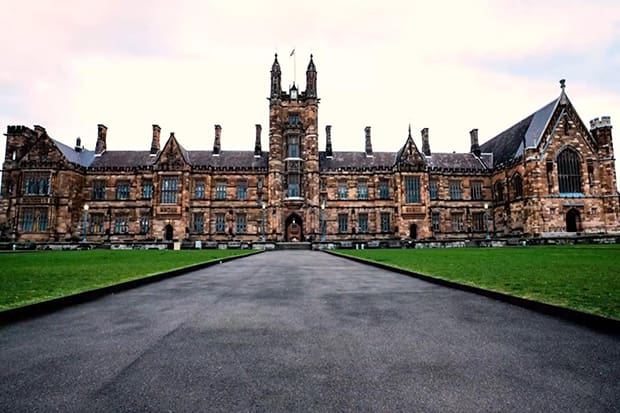Cancel culture is an evangelical head-hunting mission centred on public humiliation, ostracism and guilt by association.
Critics of cancel culture tend to be flag-waving patriots, such as Peter Kurti, a director at the conservative think-tank the Centre for Independent Studies, who recently exploited Coon’s rebranding to rant about freedom of speech in The Australian. But the idea that we cannot critique cancel culture because it is a term weaponised disdainfully by the right is utterly regressive.
It was refreshing therefore to tune into the podcast Dirtbag a few days ago and hear the hosts – two socialist activists – launch an offensive against cancel culture. Like water boiling over in a pot, the podcast (well worth a listen) overflows with scalding criticism. Nasal-infused Kiwi curse words scythe through the air, speaking to a bubbling frustration among leftist organisers who recognise that cancel culture is antithetical to so much of what we fight and protest for.
Indeed, how do we account for the diversity of signatories to the Harper’s letter? Margaret Atwood, Noam Chomsky, Bernie Sanders supporter Zephyr Teachout and Jamaican-born sociologist Orlando Patterson, a frequent contributor to The New York Times and New Left Review, usually on issues of race, are just some of those signatories. We cannot simply dismiss Chomsky, for instance, as a self-absorbed nonagenarian shielded from the biting gale of critique with a coat distinguished by its sewn-on badge reading “freedom of speech”. This is a man who has advocated for Palestinian independence for over fifty years. In his own words: “I used to have police protection… even at my own university. The meetings were broken up violently.” Chomsky is undeniably accustomed to vitriolic dissent.
Certainly, cancel culture is practical and necessary when it removes an abuser or predator from a circle of people. Their presence can trigger volatile responses from victims denied the space and time to work through their trauma. Holding public figures accountable is positive. I take no issue with ostracising people for extreme, toxic behaviour.
But when I think of cancel culture in its current form, I think of micro-transgressions and microaggressions. Rumours. Fight versus flight. Tears on bedroom carpets, downward glances in corridors and Twitter warriors emboldened by the poisonous sting of a keyboard.
In 2018, the Herald Sun published on its front page comments jokingly posted years before by Victorian Greens candidate and punk rocker Joanna Nilson. In a private Facebook group, these posts mentioned shoplifting and recreational drug use. Under pressure, Nilson stepped down from running for state parliament. In an apology letter published in The Guardian, Nilson wrote that she became interested in politics because “politicians didn’t look like me. They certainly didn’t sound like me or anyone I knew.” God forbid if anyone looks at my social media history.
This encampment – this safe space – has transformed into a towering fortress. It is built upon the smeared reputations and social corpses of the most vulnerable in society – young activists, people of colour and non-university educated workers, for instance. As Masrur Joarder recently wrote for Junkee, those with racial privilege – particularly whiteness – tend to be immune from being cancelled in Australia, meaning that cancel culture usually fails in its intended goal of bringing down public figures and elites via grassroots justice.
As an anarchist, I am distrustful of a technocratic elite replicating the behaviour of ruling classes. Academic writing leaves a sour taste in my mouth. Forcing readers to continually decode the meaning of research and jargon ensures an intellectual elite remain in control of society and dominate public discourse – albeit an intellectual elite often with their hearts in the right place. This is nonetheless a form of power and hierarchy. Similarly, punishing and cancelling someone who may not have taken gender studies units or even attended university for not championing the latest and most respectful terminology is not conducive to alliance-building or solidarity. Don’t get me wrong, I recognise the wrongdoing. But I do not condone the response.
As an anarchist, I support prison abolitionism. Cancel culture, however, jars against everything prison abolitionists fight for – rehabilitation, transformative justice, the cessation of solitary confinement and more. Prison abolitionists highlight the root, intersectional causes of societal ills. Cancel culture, meanwhile, breeds a mentality of guilty until proven innocent, recreates carceral conditions and entrenches in the left norms surrounding punitive punishment and retribution.
Fuelled by identity politics, the left has adopted in recent times a binary tribal mentality of us/them and good/evil. When we cling to our black and white worldviews, clothed in confirmation bias, we reduce complex human beings and constructs to shopfront mannequins. We depersonalise, conflate and lose the ability to think critically. The “other” becomes interchangeable with a broad cross-section of society. Even centrists become “white supremacists” and “literal Nazis”. The goal thereby becomes social annihilation.
As an anarchist, I am inclined to distrust hegemonic leftist arguments and mob rule. Social capital is integral to the persistence of cancel culture. Too often cancelling someone in political spaces is about clout – that is, furthering one’s own credentials as an activist by highlighting the comparatively poor behaviour of those around you.
Cancel culture enforces a homogenisation of views in a world increasingly defined by what political scientists term affective partisan polarisation. That is, animosity between people who do not share political views has increased in recent decades. While political tribalism may be slightly less pronounced in Australia than the US – the jury is still out – fear of expressing non-conformist thoughts will only stifle intercultural relations and debate.
Virtue signalling, blind ideological dogma and disengagement are quickly replacing humility, compassion and inclusivity as foundational elements in leftist organising. So while we’re abolishing police and prison, heck let’s abolish cancel culture too, lest we fail our comrades.






